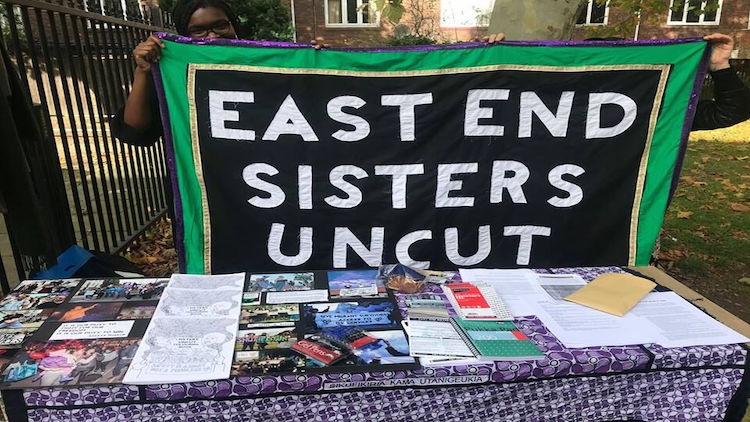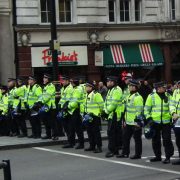
Credit: Poppy Noor
By Ellie Fry and Poppy Noor
When Sabina Begum first moved into Hopetown hostel in Whitechapel, it was a relief. Having fled a violent relationship, she settled in the hostel in Tower Hamlets and her life began to take an upturn: she made friends there and found work at local branches of Sainsbury’s and Subway.
Earlier this autumn, Sabina, 30, originally from Bangladesh, became one of the first residents to leave the 118-bed hostel when the council decided to move its premises to a new building, with just 81 beds. She was one of a number of residents offered accommodation elsewhere in the private rented sector. She was offered a place in three different locations, all a long distance away on the outskirts of London, and none of which she was able to afford.
She went to the only other place in the UK where there was anyone she knew: Northampton. She now lives with a friend, on benefits and unable to find a job.
Sabina is one of a number of women who felt they had no option other than to reject the council’s offer of alternative private accommodation. They now face an uncertain future. The displacement of the women follows the council’s controversial decision to move the hostel to a smaller premises elsewhere in Tower Hamlets, after a review suggested there was an over provision of hostel accommodation for vulnerable women in the borough.
Although the decision has been met with protests, the remaining 37 women are expected to be moved by January.

Sister’s Uncut have staged a number of protests over Hopetown hostel Pic: East End Sisters Uncut
Anna, 33, whose name has been changed, now faces a similar fate. A resident in Tower Hamlets for eight years who suffers from depression, she escaped an abusive partner when she first came to Hopetown. Anna has a part-time sales job in the borough, but since she was served an eviction notice by the council she has had to reduce her working hours due to increased anxiety.
She said: “My work has been affected. I used to work 15 hours a week, but people at work noticed the state of me… I’ve had to call in sick so many times because it’s so tough for me to deal with.”
Although the council maintain that the private sector accommodation being offered to women at Hopetown is appropriate and affordable, the housing offered to Anna, in Havering, would make it costly for her to get to work. After travel costs, she would be left with just £22.50 a week for rent and food. Anna says it was suggested that she cut costs by taking the bus – a commute that would require 8 changes and take over 6 hours.
Anna rejected the offer but claims the council tried to “bully” her into accepting, calling her place of work twice and threatening to arrive with a landlady and a contract to sign.
She has received no response to complaints made to the council and has since sought legal help, which she says has also been ignored. She says she has been left feeling “invisible.”
Despite her experience of domestic violence, and as a practising Muslim unable to share accommodation with unknown men, she was offered accommodation with mixed facilities and would have to travel through her violent ex-partner’s area to get to work. She said: “Based on my background they shouldn’t even put me in this situation.”
Anna spoke about her fears of being moved away from her network of family and friends: “My entire family is in Tower Hamlets. They always make sure I have enough food and I can go to them if I need help.”
When asked to comment on Anna’s case, Tower Hamlets council said: “We don’t comment on individual cases.” The council did not respond to a request for comment about Sabina’s case.
A council spokesperson said: “The council’s Private Rented Sector support officer who sources affordable, quality accredited PRS accommodation, will work with service users to meet individual needs on a case by case basis. No one will be under threat of homelessness as a result of the new hostels commissioning plan. The council is committed to doing our best to house those in greatest need in one of the fastest growing boroughs in the country.”
The Tower Hamlets cabinet document agreeing to cut down beds at Hopetown hostel states a desire to support residents to become independent. The spokesperson added: “Current Hopetown hostel residents who are assessed as ready to live independently are being supported to move into independent accommodation and are also being offered community based support.”
But residents say that moving them away from their support network has had the opposite effect. Sabina told East London Lines: “Tower Hamlets was the first place I came to from Bangladesh. I knew it well. I had so many friends there, I had a job. Now I live at a friend’s house and I have no money. I don’t feel more independent at all.”




